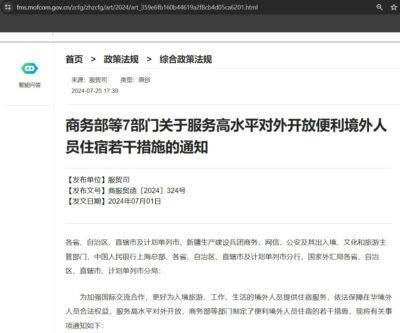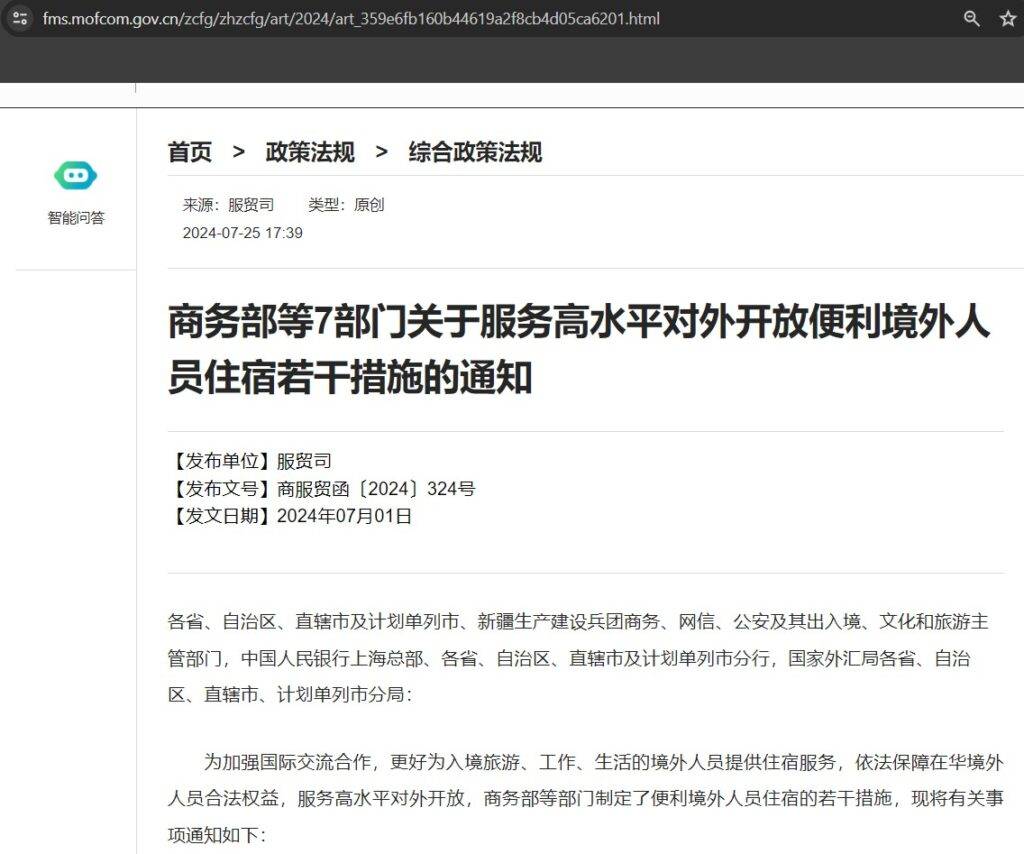
On the 25th of July, the Ministry of Commerce, alongside seven other governmental sectors, promulgated a directive explicitly declaring that hospitality establishments are prohibited from refusing accommodation to international visitors.
The original directive can be perused in Mandarin via the following hyperlink.

Should there be a need to consult the primary document or present it to pertinent authorities or hotel staff, please proceed accordingly.
This decree is disseminated to all provinces, autonomous territories, municipalities under central jurisdiction, and associated institutions nationwide.
It underscores the criticality of bolstering global interactions and partnerships, ensuring that foreigners entering China for tourism, employment, or residential purposes receive exemplary accommodation services, and safeguarding their lawful rights and interests.
The directive stressed the imperative of not restricting accommodation services to foreign nationals by citing deficiencies such as lack of permits or qualifications to host foreigners.
This mandate is applicable to both local relevant authorities and online accommodation platforms.
Relevant departments and operators (including online platform operators) must disseminate accurate information to the public regarding any limitations on hosting foreign nationals.
Additionally, provincial authorities are tasked with enhancing market oversight, conducting investigations into online platforms and participants in the lodging industry for violations concerning restrictions on foreign nationals’ accommodations, and promptly forestalling future infractions.
The directive further mandated that hotels provide training for receptionists and other personnel to elevate their industry proficiency. It also encouraged the enhancement of service standards, facilities, and equipment, alongside the provision of tourism, transportation, retail, and other pertinent information services.
Operators are mandated to offer supplementary services, such as displaying bilingual insignia, facilitating long-distance communication, and ensuring receptionists are proficient in foreign languages or equipped with AI translation tools.
The directive also highlighted the importance of refining the registration process and offering flexible payment options.


